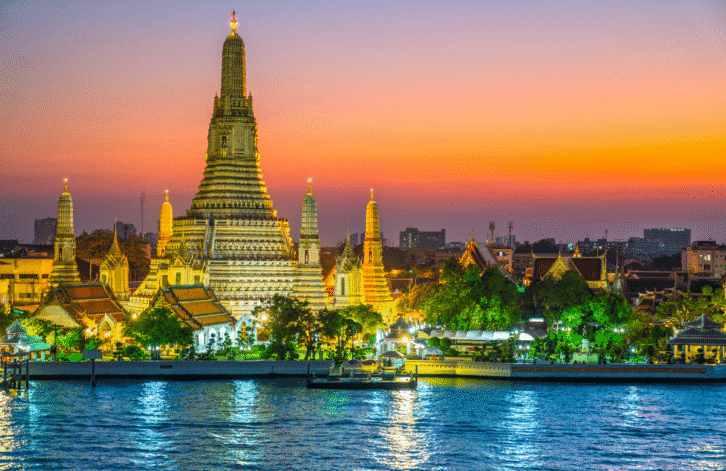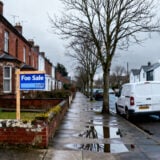Bangkok, Thailand’s capital, is a vibrant metropolis that has transformed into one of Asia’s most attractive real estate investment hubs. Its Central Business District (CBD) is particularly appealing to international buyers and investors seeking prime residential or commercial opportunities. With modern infrastructure, luxury developments, and a cosmopolitan lifestyle, Bangkok’s CBD continues to attract expatriates, professionals, and high-net-worth investors.
However, buying property in Bangkok, especially for foreigners requires a clear understanding of legal regulations, market dynamics, and investment strategies. Whether you are looking for a luxury condominium, a profitable rental investment, or a second home in the city, this guide will help you navigate the essentials of purchasing Bangkok Properties in the CBD area.
Why Bangkok’s CBD is a Prime Real Estate Location
The Bangkok CBD consists primarily of three major zones: Silom-Sathorn, Ploenchit-Lumpini, and Asoke-Ratchadapisek. Each district has unique characteristics that cater to different investor and lifestyle needs.
- Silom-Sathorn – Often referred to as Bangkok’s “Wall Street,” this area hosts multinational corporate offices, five-star hotels, and upscale residences. It’s ideal for professionals who prioritize proximity to work and business hubs.
- Ploenchit-Lumpini – This district is synonymous with luxury. High-rise condominiums, luxury malls such as Central Embassy, and fine-dining establishments dominate the skyline, making it a top choice for affluent investors.
- Asoke-Ratchadapisek – A well-balanced area that offers both business and leisure facilities, Asoke is popular among expatriates for its accessibility via both BTS (Skytrain) and MRT (subway) lines.
What makes Bangkok’s CBD particularly appealing is its limited land supply. With new condominium projects in prime locations often selling out quickly, properties here maintain strong resale and rental demand.
Can Foreigners Own Property in Bangkok?
One of the first questions international buyers ask is: Can foreigners legally own property in Thailand? The answer is yes, but with specific conditions.
1. Condominium Ownership
Foreigners can legally own condominium units in Thailand outright, provided:
- Foreign ownership in the building does not exceed 49% of the total sellable floor area.
- The purchase funds are transferred from abroad, documented through a Foreign Exchange Transaction Form (FETF), which must be presented during the title deed transfer.
Condominiums are the most common choice for foreign investors due to this legal clarity.
2. Land and House Ownership Restrictions
Foreigners generally cannot own land directly in Thailand. However, there are alternatives:
- Leasehold agreements – Foreigners can lease land for up to 30 years, with options to renew. This is common for luxury houses or villas.
- Owning buildings but not the land – Foreigners can own the structure on leased land, but not the land itself.
- Company ownership structures – Some investors set up Thai companies to purchase land, but this requires careful legal consultation to ensure compliance with Thai laws.
Because of these restrictions, most international buyers prefer condominiums in prime CBD locations.
Market Trends and Pricing in Bangkok’s CBD
Understanding current market trends is essential before investing in Bangkok’s CBD.
Pricing Overview
- Luxury Condominiums – Prime CBD locations such as Ploenchit or Sathorn command THB 250,000 to THB 500,000 per square meter, with ultra-luxury developments surpassing THB 700,000 per square meter.
- Mid-Range Options – Slightly less central but still within the CBD, mid-range condominiums cost THB 120,000 to THB 200,000 per square meter, offering better rental yield potential.
Factors Driving Prices
- Limited Land Supply – With scarce available land in the CBD, new developments often launch at premium prices.
- Infrastructure Development – The expansion of the BTS and MRT lines, as well as planned high-speed rail links, continues to boost property values in accessible areas.
- Strong Expatriate Demand – The constant flow of professionals working in Bangkok’s corporate and financial sectors drives rental demand for centrally located properties.
When compared to other global cities, Bangkok still offers relatively affordable luxury properties. Investors often highlight that a CBD condominium in Bangkok can cost significantly less than comparable properties in Singapore or Hong Kong, yet still deliver strong rental yields.
Rental Yields and Investment Opportunities in Bangkok
Bangkok’s CBD remains a hotspot for investors seeking rental income and long-term capital appreciation.
Rental Yield Expectations
- Average yields range from 3% to 5% annually, depending on property location, size, and management.
- Smaller units (35–50 sq.m., one-bedroom) tend to achieve higher yields due to stronger demand among young professionals.
- Larger family units (two- to three-bedroom apartments) appeal to expatriate families and corporate executives, offering more stable long-term leases.
Investment Tips
- Focus on transport accessibility – Properties within walking distance of BTS or MRT stations are highly desirable.
- Look for upcoming infrastructure projects – Areas near new transport lines often experience significant appreciation after project completion.
- Choose reputable developers – Well-established developers maintain property value and attract tenants more easily.
Lifestyle Advantages of Living in the CBD
For buyers considering personal use rather than investment, Bangkok’s CBD offers unmatched lifestyle benefits.
- Convenience and Connectivity – With easy access to public transport, getting around Bangkok is efficient.
- Luxury Amenities – High-rise condos feature modern facilities such as infinity pools, gyms, concierge services, and co-working spaces.
- Shopping and Dining – From luxury malls like EmQuartier and Siam Paragon to Michelin-starred restaurants, the CBD is a lifestyle hub.
- Healthcare and Education – World-class international hospitals and prestigious international schools are located nearby, making it ideal for families relocating to Bangkok.
These lifestyle perks not only improve personal living standards but also enhance rental demand among expatriates.
Common Mistakes Foreign Buyers Should Avoid in Bangkok
Buying in a foreign market can be challenging, and mistakes can be costly. Here are common pitfalls to avoid:
- Neglecting Legal Advice – Always consult a qualified real estate lawyer to ensure contracts are compliant with Thai laws.
- Overlooking Maintenance Fees – High-end condos often have significant monthly fees for shared facilities, which should be factored into your budget.
- Skipping On-Site Inspections – Photos can be misleading; visiting the property or hiring a trusted agent to inspect on your behalf is crucial.
- Ignoring Resale Value – While some buyers focus on rental income, resale potential should also be considered, especially in a competitive market.
Practical Tips for Buying Bangkok CBD Properties
For a smooth purchasing experience, keep these tips in mind:
Secure financing early
While many international buyers use cash, don’t assume financing will be a quick process if you need it. Local banks often have very limited options for non-residents and impose strict conditions, such as requiring a specific visa, a significantly larger down payment, and extensive income verification from your home country. Starting this process months in advance is crucial to avoid delays or losing out on a property.
Keep documentation in order
Every international fund transfer must be meticulously documented to comply with both local and international legal standards, particularly anti-money laundering (AML) regulations. Maintain a clear paper trail, including bank statements and wire transfer receipts, that proves the legitimate source of your funds, as this will be required by lawyers, notaries, and government agencies to finalize the sale.
Compare multiple projects
Avoid falling in love with the first property you see. Even within the same desirable district, factors like developer reputation, build quality, ongoing maintenance fees, and specific amenities can vary dramatically from one building to the next. Visiting several options will give you a much clearer understanding of true market value and ensure you’re not overpaying for what you get.
Think long-term
Your due diligence shouldn’t stop at the property line. Research the local municipality’s urban development plans to understand what the neighborhood might look like in five or ten years. A planned subway station or a new international school could significantly boost your property’s value, while a future industrial park or a high-rise that blocks your view could have the opposite effect, impacting both your quality of life and your investment’s future returns.
Final Thoughts
Investing in Bangkok’s CBD can be highly rewarding for international buyers, offering both strong rental yields and an attractive lifestyle. However, understanding legal regulations, market trends, and the unique dynamics of each district is essential for making an informed decision.
If you are ready to explore Bangkok Properties for personal use or as a long-term investment, start by researching reputable developers, consulting legal experts, and visiting key CBD locations in person.
For additional insights and up-to-date listings, you can also check Bangkok Properties to gain a deeper understanding of the city’s prime real estate opportunities. The right property in Bangkok’s CBD could be both a profitable investment and a gateway to experiencing one of Asia’s most exciting cities.






